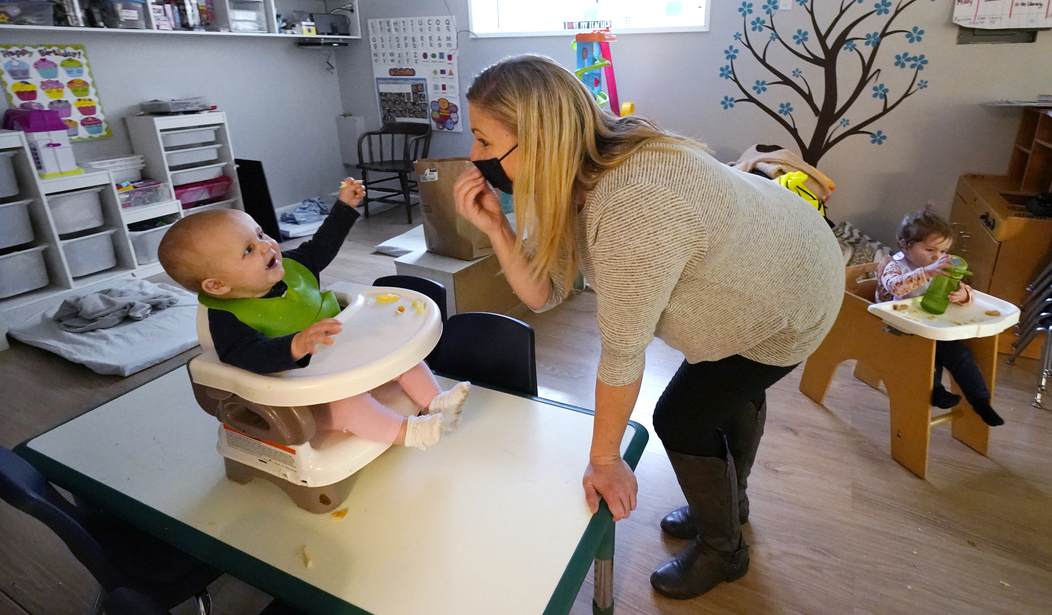As colleges and universities work to bounce back from a pandemic that drastically changed the way most people view higher education, many students are hoping some changes stick around – especially many college students who are also parents. Millions of students over the last few years experienced a complete shift to virtual learning, forcing higher education institutions to become more flexible to meet student needs. But with COVID concerns waning, many colleges have rushed to bring students back on campus, rolling back the virtual infrastructure that made it easier for so many students, particularly non-traditional students, to succeed.
Frankly, many students do not want to return exclusively to the classroom. A recent report found preferences for course modalities rapidly shifted over the course of the pandemic with mostly face-to-face classes dropping from 30% of respondents to 12% while completely online courses jumped from 5% to 20%, suggesting students are starting to prefer the flexible benefits of virtual education options over in-person.
This sentiment is certainly shared by student parents who are often overlooked when it comes to student needs, yet they represent more than one in five (22%) of the overall undergraduate population. While many share similar struggles with other students, they also have to contend with the high cost of childcare and the difficulty of staying enrolled in a system that was not built with their needs or experiences in mind.
Over the last two years, we have seen that while virtual learning is not perfect, it does allow student parents to stay home with their children while taking classes online. When coupled with the ability to complete various exams and assignments at times that are convenient for them, this learning environment can be extremely beneficial for student parents who have more demands on their time than their non-parenting peers.
The annual cost of childcare can average close to $10,000 a year for one child. These costs can be difficult for dual parents with stable incomes, let alone a single parent trying to juggle the costs of school tuition and childcare.
Recommended
While universities alone can’t be expected to cover all the costs of childcare, many have cut their own childcare programs over the years, leading to a 14 percent decline in on-campus childcare from 2004 to 2019. The trend is even worse among community colleges where most student parents are enrolled and are experiencing a steeper reduction of 17 percent. The federal government has made efforts to help reverse this trend by more than tripling its childcare grant funding to schools in 2018 from $15 to $50 million to serve low-income students with children. Despite this increase, estimates show the program only reaches about 11,000 of the 4.8 million total student parents.
The gap between childcare needs and availability is unlikely to be fixed in the near future given the scale of the issue across all industries, but it makes clear the need to provide parents with more opportunities, like virtual learning, to help them balance their busy lives.
Lack of affordable, reliable childcare is one of many obstacles that student parents face and that disproportionately impacts their academic careers. It’s less often the academic rigor of college that makes it difficult to stay enrolled and more often the lack of financial resources and having to navigate policies that further exclude them. For example, students with children are often forced to take semesters off or to transfer schools because they can’t afford to stay in school or their childcare is interrupted. As a result, policies that limit transfer credits or federal Pell Grants that expire after six years can force student parents to retake classes with even less financial support. One way to help parents catch up is through online education resources that include study guides, practice questions, writing assistance, and detailed descriptions of how to solve complex math problems. For these students who often cannot make it to office hours, online resources provide a vital lifeline to help students learn at a pace and time that works with their busy schedules.
According to a recent report by Chegg, an online educational resource company, 55% of student parents have considered dropping out of school due to the demands of parenting while 73% of student parents who have children in middle school or below have missed work or class because of childcare arrangements. Colleges must identify ways to be more inclusive of parenting students in campus life and an institution-wide lens that considers the needs of student parents in the implementation of all of its services.
Studies show that student parents are 10 times less likely to achieve a college degree in five years compared to those without kids. Colleges and lawmakers must work to ensure students are not unfairly locked out of the higher education system because they are raising children. Embracing the virtual and hybrid learning opportunities we have developed over the course of the pandemic, along with supportive online resources that can help student parents study on their own schedule wherever they might be, will help ensure all students have a fair shot at earning a degree.
























Join the conversation as a VIP Member